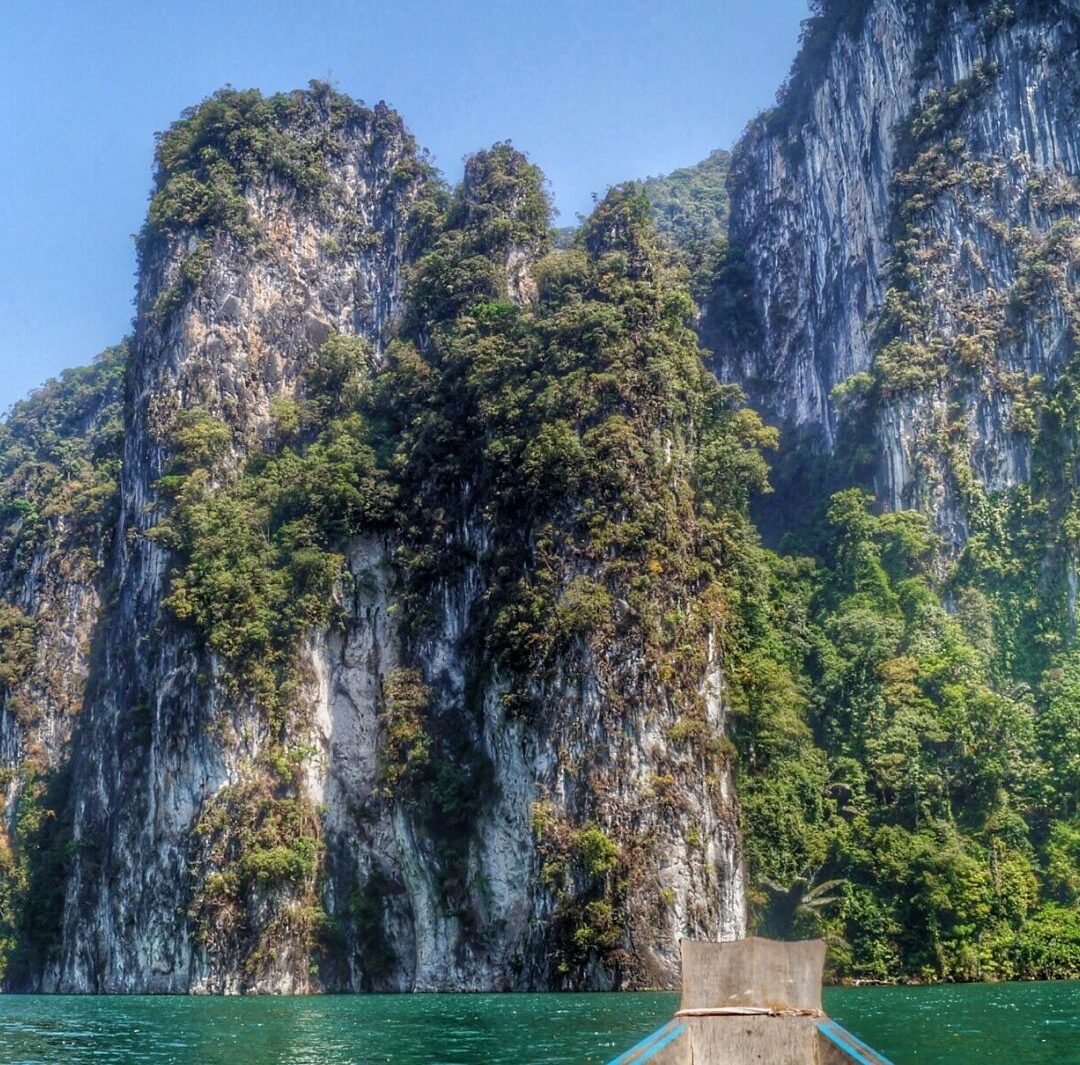Khao Sok’s Green Renaissance: Thailand’s Eco-Haven Beckons Indian Travelers in 2025
August 27, 2025 – Khao Sok National Park, Thailand’s emerald jewel, is emerging as a must-visit destination for 2025, riding the wave of sustainable travel trends that resonate deeply with eco-conscious Indian travelers. Nestled in Surat Thani province, this 160-million-year-old rainforest, older than the Amazon, is experiencing a tourism revival, blending adventure with conservation to offer unparalleled experiences like floating bungalows on Cheow Lan Lake and ethical elephant encounters. With Thailand’s tourism sector projecting 36 million visitors in 2025, Khao Sok stands out as a beacon of responsible travel, drawing Indian visitors seeking authentic nature escapes.
A Pristine Wilderness Reimagined
Spanning 739 square kilometers, Khao Sok boasts dramatic limestone karsts, emerald rivers, and one of the world’s most biodiverse ecosystems, hosting over 200 floral species per hectare, 48 mammal species, and 311 bird species, including the majestic hornbill. The park’s centerpiece, Cheow Lan Lake, a 165-square-kilometer reservoir, offers serene boat tours and overnight stays in eco-friendly floating bungalows, where visitors wake to mist-laden jungles and gibbon calls. Unlike Thailand’s crowded beaches, Khao Sok remains an unspoiled retreat, with sustainable tourism initiatives ensuring its preservation.
In 2025, Khao Sok is capitalizing on Thailand’s “Value is the New Volume” strategy, launched by the Tourism Authority of Thailand (TAT) on July 21, 2025, to prioritize quality experiences and sustainability. Local operators, such as Khao Sok Lake and Elephant Hills, are enhancing eco-tourism with low-impact activities like canoe safaris, night treks to spot slow lorises, and community-led cooking classes featuring organic Thai cuisine. These efforts align with global trends, as 45% of travelers now prioritize sustainability when booking holidays, a figure nearly doubled since 2014.
Why Indian Travelers Are Flocking
Indian tourists, Thailand’s second-largest visitor group after China, contributed 1.9 million arrivals in 2024, with projections for 2.2 million in 2025. Khao Sok’s proximity to Phuket (2 hours) and Krabi (2 hours), accessible via Surat Thani Airport, makes it an ideal add-on for Indian itineraries. Affordable minibuses (THB 300–330) and private transfers (THB 3500–5500) simplify travel, while budget accommodations like Jungle Tree Resort (THB 400–980) and floating bungalows (THB 2385–6000) cater to diverse budgets.
The park’s ethical elephant sanctuaries, such as Sonchana Farm, resonate with Indian travelers seeking cruelty-free wildlife experiences. Visitors can feed and bathe elephants in natural settings, learning about conservation efforts that protect these gentle giants. “Khao Sok offers a soulful escape,” said Priya Mehra, a Mumbai-based travel blogger who visited in June 2025. “It’s not just about adventure; it’s about connecting with nature responsibly.”
Sustainable Innovations and Cultural Connections
Khao Sok’s revival is bolstered by community-driven initiatives. Anurak Community Lodge employs local villagers, reinvesting tourism revenue into schools and conservation projects. The park’s rainy season (June–October), peaking now in August 2025, offers lush landscapes and thrilling river tubing, drawing Indian families during monsoon holidays. TAT’s 2026 vision includes promoting Khao Sok alongside cultural festivals like Maha Loy Krathong, creating packages that blend nature and Thai heritage for Indian audiences.
To enhance accessibility, Khao Sok Travel has introduced private tours departing from Phuket and Krabi, including a 2-day, 1-night Cheow Lan Lake adventure with cave exploration and wildlife safaris. Digital platforms now offer virtual tours of Khao Sok’s limestone cliffs, enticing Indian travelers to plan in-person visits. These align with Thailand’s push for immersive, low-impact tourism, ensuring economic benefits for local communities.
Challenges and Opportunities
Despite its allure, Khao Sok faces challenges like seasonal trail closures during heavy rains and the need for better waste management to handle growing visitor numbers. However, partnerships with groups like Andaman Discoveries ensure sustainable practices, such as biodegradable amenities and guided tours that educate visitors on preserving the park’s ecosystem. Indian tour operators are also crafting tailored packages, combining Khao Sok with nearby Ang Thong National Marine Park for a dual-destination eco-adventure.
A Call to Explore Responsibly
Khao Sok National Park is not just a destination; it’s a testament to Thailand’s commitment to sustainable tourism. For Indian travelers, it offers a chance to disconnect from urban chaos and reconnect with nature’s timeless beauty. Whether kayaking through emerald waters or trekking to hidden waterfalls, Khao Sok promises an unforgettable journey that respects the planet and its people.



